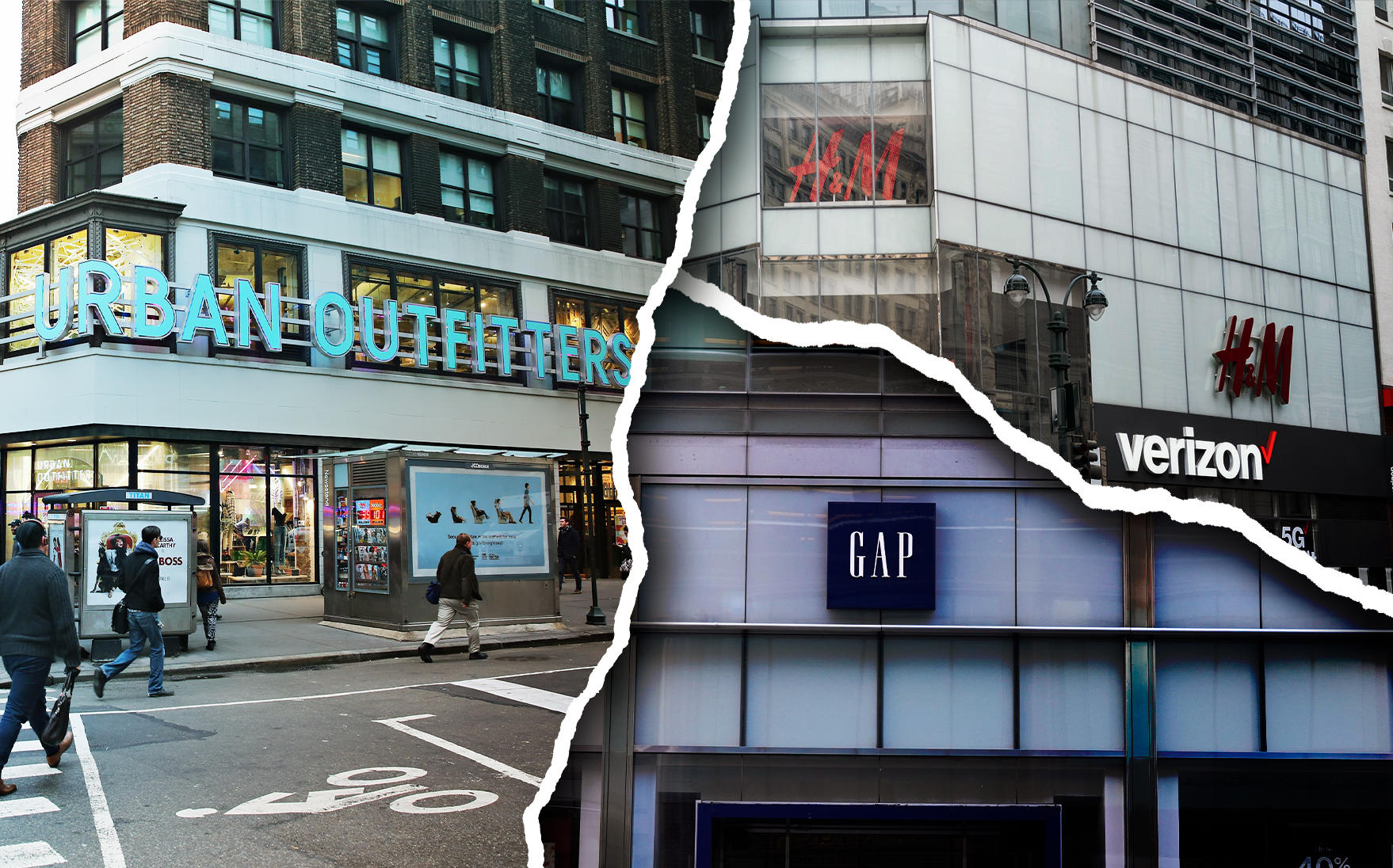Before the coronavirus, retailers like H&M and Urban Outfitters were the kinds of companies that landlords targeted. Owners laid out pricey incentive packages and heavily courted these “credit-worthy” tenants — the kind with hefty balance sheets and a history of always paying rent.
Now, as a number of those formerly blue-chip businesses have continued to withhold their monthly payments even after stay-at-home orders lifted, a growing number of landlords have been taking them to court.
“I’ve never been in a situation where these so-called credit tenants didn’t pay rent,” said Albert Laboz of United American Land, who sued H&M last week for not paying rent at his Downtown Brooklyn space. “That’s why we pay broker commissions and pay [tenant improvement packages] and do tenant build-outs. The whole practice is set up so we don’t have these issues.”
Landlords also prize credit tenants because their leases allow owners to get favorable financing from lenders. It’s not quite clear how tenants’ decisions to withhold rent will affect their relationships with landlords in the future.
Another H&M landlord — JEMB Realty — recently sued the fast fashion retailer at its Herald Square location in Manhattan. But not all of H&M’s landlords have been so quick to pull the trigger.
H&M has 17 locations in New York City’s five boroughs. Its largest landlord in the city, mall REIT Macerich, has them in three locations in Brooklyn, Queens and Harlem.
Industry experts said large mall operators like Macerich, Westfield and Brookfield — each of which leases to H&M in New York — could be more patient with non-paying tenants than smaller landlords. Those smaller owners rely more directly on rent payments to cover mortgage expenses and taxes. But Macerich has also been scrambling to negotiate leases during the pandemic The Santa Monica, California-based company collected just 26 percent of April rent from tenants across the 47 shopping centers in its portfolio, it has said.
Similarly, landlords leasing out spaces to small businesses may be more flexible with providing deferrals or negotiating other deals with tenants, according to David Wander, bankruptcy partner at Davidoff Hutcher & Citron.
“The legal defenses may apply to someone small because you might be put out of business, you may not have the money,” Wander said. “But if you are a public company and you have sufficient funds, it simply means you’ll earn less money. Your stock will go down.”
Justin Brasch, a real estate attorney with his own practice in New York, expects to see more lawsuits as landlords are forced to decide between suing their tenants or renegotiating contracts in order to pay their bills.
“It’s just unsustainable that tenants don’t pay rent for an extended period of time,” Brasch said. “These landlords deal with these situations in very different ways depending on their personalities, their risk tolerance and their values.”
Last month, there were 15 national retailers that didn’t pay any May rent, according to a report by Datex Property Solutions. They include Bed Bath & Beyond, H&M, Century 21, AMC Theaters, Regal Cinemas, Party City and The Gap.
The Gap is the largest in-line tenant for the country’s largest mall operator, Simon Property Group, which sued the retailer last week for $66 million in unpaid rent across its properties.
Having tenants begin to pay rent, especially as New York City reopens, is vital to bringing landlords to the table for negotiations, said attorney David Rosenbaum. He is senior partner at Borah, Goldstein in New York, and heads up the firm’s commercial landlord and tenant litigation division.
“I’m praying that retailers can start earning revenue to be able to start paying their rents, or even a portion of their rent, to show good faith to their landlords,” Rosenbaum said.
Some companies, including 24 Hour Fitness, AMC Theaters and Pier One Imports, have either announced potential bankruptcy or plans to liquidate assets. Although a declaration of bankruptcy would typically mean that retailers would have to continue paying rent, a court ruling, which approved Modell’s Sporting Goods’ request to pause its bankruptcy, has set a precedent to allow retailers to forego even that obligation.
“So Modell’s Sporting Goods is an example [of bankruptcy judges] constructively pushing the envelope, but if you’re a landlord, you’re screaming bloody murder,” Wander said.
Contact Rich Bockmann at rb@therealdeal.com or 908-415-5229. Contact Sasha Jones at sasha.jones@therealdeal.com
